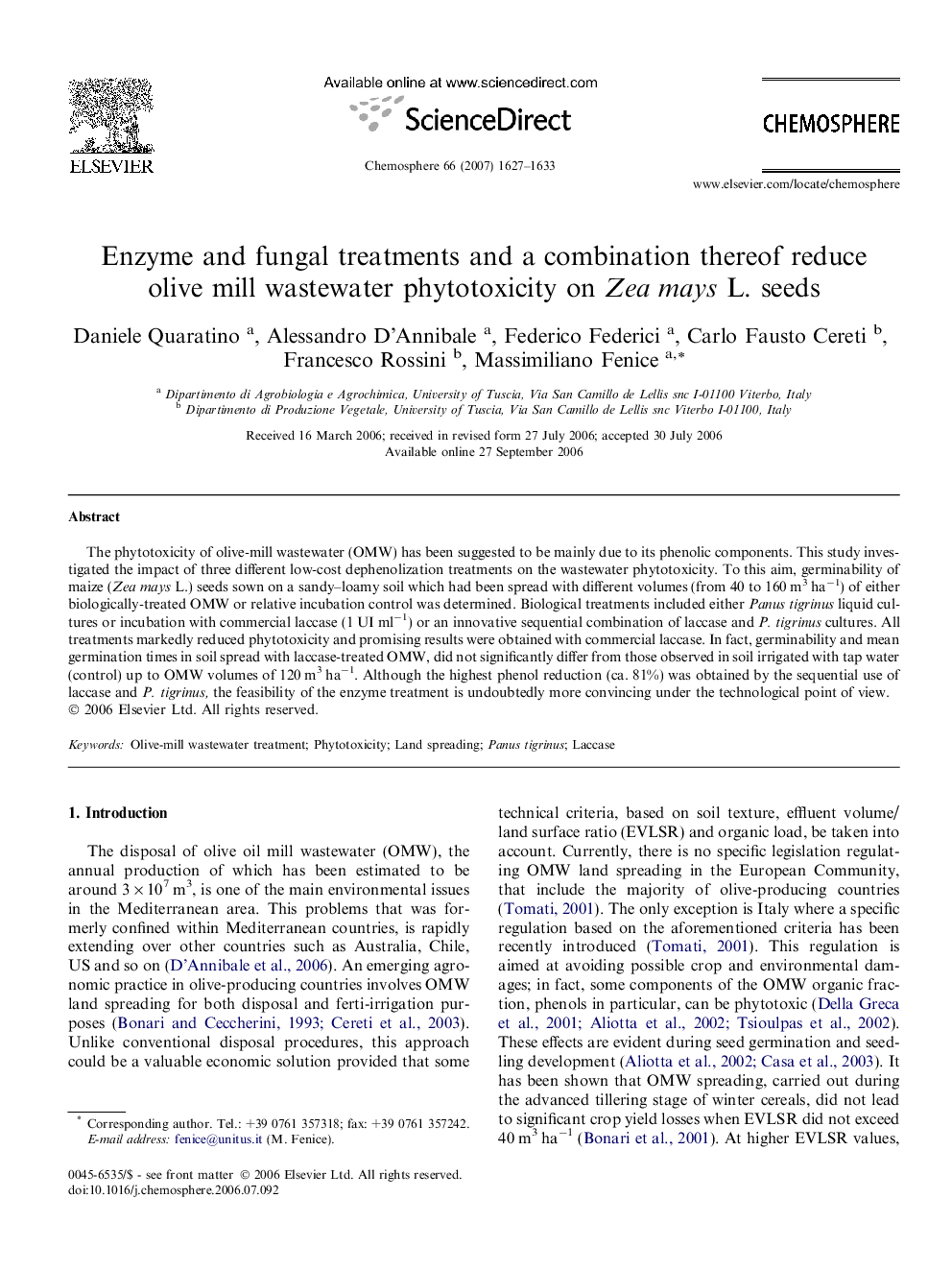| Article ID | Journal | Published Year | Pages | File Type |
|---|---|---|---|---|
| 4415406 | Chemosphere | 2007 | 7 Pages |
Abstract
The phytotoxicity of olive-mill wastewater (OMW) has been suggested to be mainly due to its phenolic components. This study investigated the impact of three different low-cost dephenolization treatments on the wastewater phytotoxicity. To this aim, germinability of maize (Zea mays L.) seeds sown on a sandy-loamy soil which had been spread with different volumes (from 40 to 160Â m3Â haâ1) of either biologically-treated OMW or relative incubation control was determined. Biological treatments included either Panus tigrinus liquid cultures or incubation with commercial laccase (1Â UIÂ mlâ1) or an innovative sequential combination of laccase and P. tigrinus cultures. All treatments markedly reduced phytotoxicity and promising results were obtained with commercial laccase. In fact, germinability and mean germination times in soil spread with laccase-treated OMW, did not significantly differ from those observed in soil irrigated with tap water (control) up to OMW volumes of 120Â m3Â haâ1. Although the highest phenol reduction (ca. 81%) was obtained by the sequential use of laccase and P. tigrinus, the feasibility of the enzyme treatment is undoubtedly more convincing under the technological point of view.
Related Topics
Life Sciences
Environmental Science
Environmental Chemistry
Authors
Daniele Quaratino, Alessandro D'Annibale, Federico Federici, Carlo Fausto Cereti, Francesco Rossini, Massimiliano Fenice,
